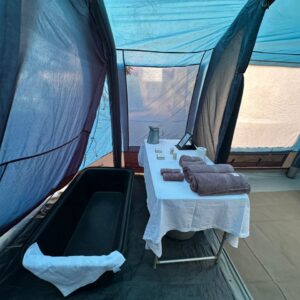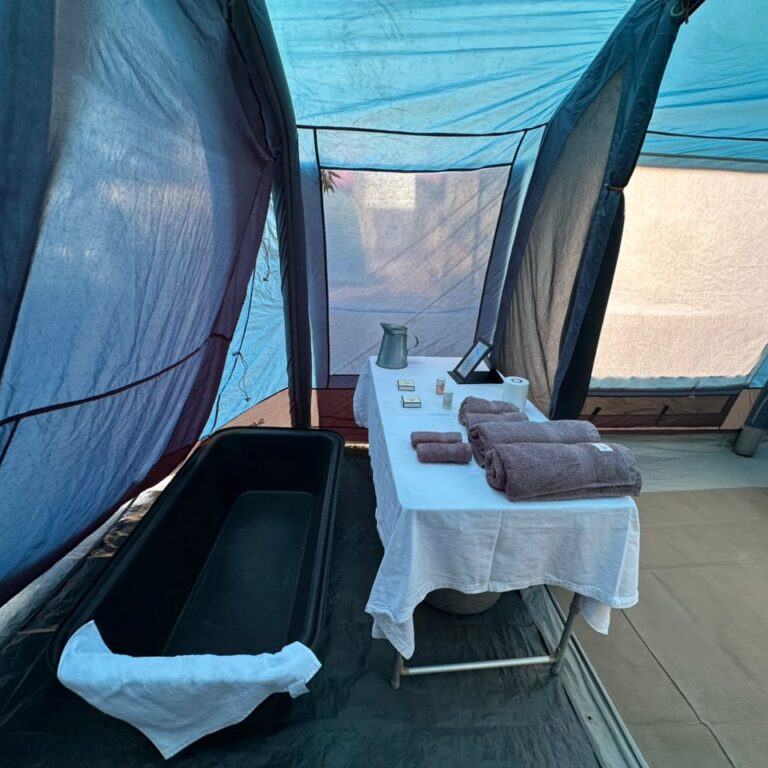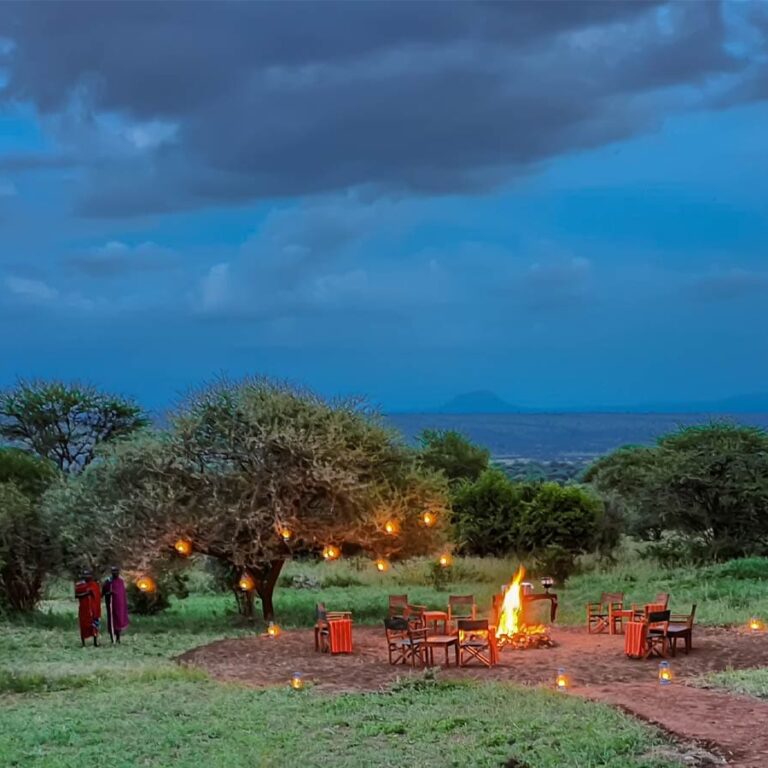Tanzania, renowned for its stunning landscapes, vibrant wildlife, and rich cultures, has become a bucket-list destination for travelers worldwide. The country boasts adventures from the peaks of Mount Kilimanjaro to the breathtaking wildlife in the Serengeti. But as with any travel destination, questions of safety often arise. It is generally considered safe to travel to Tanzania, and it’s a popular destination for tourists seeking incredible wildlife encounters and stunning landscapes. However, like any travel destination, it’s essential to be aware of potential risks and take necessary precautions. So, is it safe to travel to Tanzania? This article aims to clarify some common concerns and provide useful tips to ensure a secure trip.
Understanding the Safety Landscape
Tanzania has experienced significant development in recent years, particularly in its tourism sector. Tourist hotspots like Zanzibar, Arusha, and the national parks are generally considered safe, with highly regulated environments to protect tourists and animals alike. However, like any country, it does have areas where caution is advised. Traveling to Tanzania in 2025 can be a safe and rewarding experience with proper planning and awareness. By staying informed about current advisories, taking necessary health precautions, and being mindful of your surroundings and local customs, you can mitigate potential risks and enjoy the incredible beauty and wildlife that Tanzania has to offer. Check this: Tanzania Travel Guide – Parks, Best Time, Reviews & More
Crime and Personal Safety
Crime rates can vary significantly between urban and rural areas. In larger cities, petty crimes such as pickpocketing and bag-snatching can occur, especially in crowded markets or public transport. Tourists are generally advised to remain vigilant, avoid flashing valuables, and utilize hotel safes when possible. Check this: Is it safe to safari in Tanzania?
It’s wise to travel with a reputable tour company, particularly in less populated regions. Guided tours not only enhance safety but also enrich the travel experience with local knowledge and context.
Reputable Operators: Booking tours and safaris with well-established and reputable operators is crucial for your safety and overall experience. They are knowledgeable about local conditions and have established safety protocols.
Transportation: It’s generally recommended to avoid public transportation like minibuses (dala-dalas) and motorbike taxis (boda-bodas) due to safety concerns. Opt for registered taxis or ride-hailing services in cities. If self-driving, use a 4×4 vehicle outside urban areas and avoid driving at night.
Wildlife Encounters: In national parks and reserves, always follow the instructions and guidelines provided by your guides and park rangers. Never leave vehicles in the wild or attempt to approach animals.
Coastal Areas (including Zanzibar): Maintain a heightened sense of security awareness in coastal areas and stay informed about any local advisories.
Health Considerations
Health is another critical aspect to consider when planning your trip. Vaccinations and health precautions are vital for travelers heading to Tanzania. Recommended vaccinations include those for Hepatitis A, Typhoid, and Yellow Fever. Malaria is also prevalent, especially in rural areas, so taking antimalarial medication is highly recommended. Travelers should stay hydrated, practice safe food consumption, and consider travel insurance that covers medical emergencies. Knowing where to find hospitals and clinics in case of illness is also crucial.
Vaccinations: Ensure you are up-to-date on all routine vaccinations and consult your doctor about recommended vaccinations for Tanzania, such as yellow fever, typhoid, hepatitis A, and others. A yellow fever vaccination certificate is required if you are traveling from or transiting through countries with a risk of yellow fever transmission.
Malaria: Malaria is a risk in many parts of Tanzania. Take necessary precautions, including antimalarial medication, using insect repellent, and sleeping under mosquito nets.
Mpox: Be aware of the ongoing Mpox (monkeypox) outbreak in parts of Africa, including Tanzania. You may be subject to health screening measures upon arrival.
Food and Water Safety: Drink bottled or treated water and be cautious about food hygiene, especially from street vendors.
Medical Facilities: Medical facilities can be limited, especially outside major cities. Ensure you have comprehensive travel insurance that covers medical emergencies, including evacuation if necessary. Check this: How We Keep You Safe on Kilimanjaro?
Current Travel Advisories (as of May 4, 2025)
U.S. Embassy Security Alert (March 21, 2025): Advises U.S. personnel to avoid travel to islands and coastal areas south of Kisiju due to potential security threats.
Mpox Outbreak (March 10, 2025): The Tanzanian government has announced an outbreak of Mpox, and travelers may undergo health screening at entry points.
Political Stability
Tanzania is considered politically stable, and violent protests are rare. Travel advice and advisories for Tanzania. Elections happen regularly, and generally, the process is peaceful. However, it’s always wise to stay informed about the political climate before your trip. Following local news or consulting with your country’s travel advisory can provide useful insights. Check this: Ultimate Guide to Tanzania Safari Safety Tips.
Cultural Awareness and Respect
Respecting local customs and traditions is essential when traveling in Tanzania. The country is home to over 120 ethnic groups, each with its unique customs and practices. Learning a few phrases in Swahili, the national language, can go a long way in building rapport and showing respect to locals.
When visiting religious sites or rural communities, dress modestly to honor cultural norms. Engaging with local communities through guided tours can provide a richer understanding of their culture and way of life, and it is often appreciated by the locals.
Dress modestly, especially in rural and coastal areas and when visiting religious sites.
Homosexuality is illegal in Tanzania, and public displays of affection, even between heterosexual couples, should be discreet. LGBTQ+ travelers may face a higher risk of harassment.
It is illegal to photograph government buildings, military installations, or locals without their permission. Plastic bags are prohibited in Tanzania and can lead to fines or imprisonment.
Wildlife Safety
For nature enthusiasts, witnessing Africa’s wildlife is a highlight of visiting Tanzania. While engaging with animals in their natural habitat is thrilling, it’s essential to follow the safety guidelines given by park rangers. Never approach or feed wildlife, keep a safe distance, and stay in your vehicle during game drives unless instructed otherwise.
Recommendations for Safe Travel to Tanzania
Stay Informed: Regularly check travel advisories issued by your home country’s government for the latest updates and recommendations.
Enroll in Embassy Programs: If your country has an enrollment program for travelers (like STEP for U.S. citizens), register your trip to receive alerts and facilitate assistance in emergencies.
Be Vigilant: Pay close attention to your surroundings and be aware of potential risks in all locations.
Secure Belongings: Do not leave food or drinks unattended, and take precautions to secure your valuables.
Respect Local Customs: Be mindful of local customs and laws.
Health Precautions: Follow all recommended health guidelines and ensure you have adequate travel insurance.
Is Arusha Safe for Tourists? Arusha is generally safe for tourists, especially in popular areas and national parks. However, petty crimes like pickpocketing can occur, so it’s wise to stay alert, avoid walking alone at night, and use reputable tour operators. Local hospitality is strong, and most visits are trouble-free.
How Safe is Zanzibar in 2025? Zanzibar remains relatively safe for tourists in 2025, with most visits being trouble-free. The island is peaceful, especially in tourist areas, but petty theft can occur. It’s advised to respect local customs, avoid isolated areas at night, and use trusted transportation. Authorities have improved security, enhancing safety for visitors.
Is Tanzania Safe for Female Tourists? Tanzania is generally safe for female tourists, especially in tourist-friendly areas and with guided tours. While locals are welcoming, women should dress modestly, avoid walking alone at night, and stay aware of their surroundings. Harassment is rare but possible, so basic precautions help ensure a safe and enjoyable trip.
Is Tanzania Safe for Americans and Other Nationalities to Visit? Tanzania is considered safe for Americans and other nationalities to visit, with tourism being a major industry. Most visits are trouble-free, especially when using licensed guides and tour operators. Travelers should stay alert in crowded areas, avoid isolated places at night, and respect local laws and customs.
Tanzania Travel Advice & Safety. Tanzania is generally safe for tourists, but caution is advised. Stay alert in crowded areas to avoid petty theft. Use reputable tour operators for safaris and avoid isolated areas, especially at night. Health precautions include vaccinations and malaria prevention. Road conditions vary; drive carefully or hire local drivers. Political gatherings should be avoided. Always respect local customs and laws. Stay updated on travel advisories from your government before and during your trip. Check this: 10 bits of advice from past Kilimanjaro climbers.
Tanzania Travel Advisory. Tanzania is generally safe for travelers, but caution is advised due to petty crime and occasional civil unrest. Stay alert in crowded areas, avoid political gatherings, and follow local laws. Health precautions, including vaccinations and malaria prevention, are recommended. Travel to border regions near Burundi and Mozambique requires extra caution. Always check the latest government travel advisories before departure.
Final thought: Safety and security – Tanzania travel advice
Traveling to Tanzania can be a remarkable experience filled with adventure, beauty, and culture. Like any travel destination, it’s essential to approach your trip with caution and awareness. By following general safety tips, respecting local customs, and staying informed about health and political updates, travelers can enjoy the wonders of Tanzania with confidence. Whether you’re climbing Kilimanjaro or exploring the Serengeti, the memories you create will last a lifetime.








